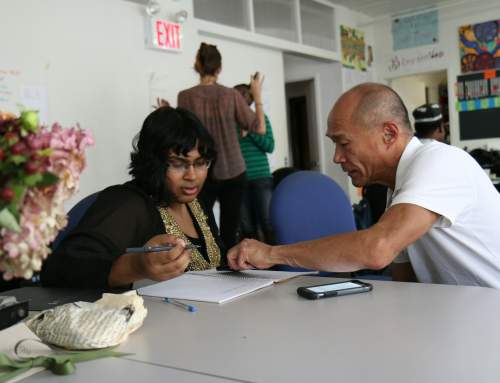Panic is bad. It is debilitating and the mortal enemy of the job candidate in their first face-to-face meeting.
In my experience of interviewing prospective employees, I was constantly amazed by how many, perfectly eligible applicants would ruin their job prospects because of panic.
Panic made them sound incoherent and confused; appear uncertain; and act fidgety. None of this inspired confidence that the person in front of me was the right person for the job.
In all stages of nervousness, panic is an extreme one. If you can control your nerves then you will prevent panic and enhance your chances of smashing the interview.
Oxygen is free – use it.
Breathe often, and breathe deeply.
Of course you will be nervous and a bit tense when you enter the interview room. These feelings of tension and nervousness are normal. No matter what you do these feelings will be present and you should embrace and control them. Unlike panic, nerves or tension are a good thing. They keep you sharp, they keep you focused and it proves that you care. It proves that the process is important to you. Everyone knows we perform best when something matters. I would be concerned if I was about to be interviewed for a role and I was not a little nervous or tense. HOWEVER, you can’t let nerves turn into terror.
When we are nervous, we release adrenalin that activates our fight or flight response. These responses are instinctive protective mechanisms and the last thing you want to do in an interview is to act on instinct. In an interview you need to be clear-headed, strategic and in control. So you need to control your nerves.
How do we do this? With deep breathing before entering the interview and then after each question. Take a deep breath before starting your answer to each interview question.
The value of breathing deeply is that it is a natural antidote to adrenaline.
Deep breathing controls your nerves.
Furthermore, deep breathing give you a chance to “buy time”. By taking a deep breath you are giving yourself time to:
- Think about the question
- Better understand what is being asked
- Structure your thoughts and your examples
- Identify and provide the information they are seeking
- Speak in your normal voice at your normal pace.
How to panic proof
- Wear a good deodorant. Nobody wants to see sweat patches under your arms.
- Listen to relaxing music on the way in
- Stay hydrated so your mouth isn’t dry and makes your words clam up







